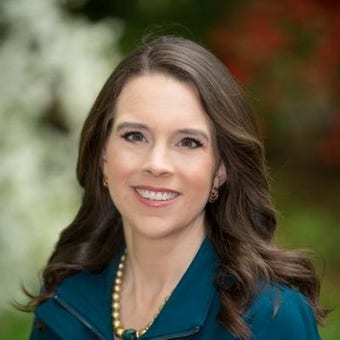Sunday, May 24, 2020
Judges as partisan political actors
Reaction from Carrie Severino, former clerk to Supreme Court Justice Clarence Thomas.
U.S. District Judge John McConnell is an unabashed liberal, big donor to the Democratic Party, and a longtime friend of Sen. Sheldon Whitehouse, a far-left Democrat from the judge’s home state of Rhode Island. McConnell owes his job to Whitehouse, who asked President Barack Obama to nominate him to become a federal judge.
A recent CQ Roll Call investigation showed that McConnell gave about $500,000 to Democratic political committees before becoming a judge – more than any other judge nominated by Presidents Obama or Trump.
Why should you care? Because McConnell sits on the Committee on Codes of Conduct of the U.S. Judicial Conference. The committee sets ethical guidelines for federal judges and recently proposed barring these judges from membership in the Federalist Society, a network of conservative and libertarian law students and lawyers.
While the Committee on Codes of Conduct wants to keep federal judges from joining the Federalist Society, which does not lobby or take positions on issues, it has no problem with their membership in the liberal American Bar Association, which does.
The draft advisory opinion by the committee has been portrayed by its cheerleaders – Sen. Whitehouse being the most prominent – as a high-minded effort to remove politics from the courts. This sounds like a noble idea on its face. But the reality is that everything about the behind-the-scenes effort to implement the draft to bar judges from membership in the Federalist Society has been partisan and unseemly.
To say that Whitehouse has been obsessed with attacking the Federalist Society would be an understatement. For years he has been on a one-man mission to delegitimize the Federalist Society and its co-chairman, Leonard Leo.
So it was no surprise when last week Whitehouse led six other Democratic senators in penning a letter enthusiastically endorsing the draft advisory opinion seeking to keep judges from belonging to the Federalist Society.
Whitehouse’s buddy, Judge McConnell, is a key player in the effort to ban federal judges from being members of the society.
McConnell’s nomination – which was pushed by Whitehouse – was controversial because McConnell had contributed to $12,600 to Whitehouse’s campaign between 1993 and 2010 as part of his $500,000 in Democratic political contributions.
Politico reported that McConnell had even hosted a fundraiser for Whitehouse at his Providence home in 2006, prompting questions about whether Whitehouse should recuse himself from voting on McConnell’s nomination. (He didn’t.)
Notwithstanding the controversy or corruption concerns, Whitehouse persevered, and eventually his friend and donor McConnell was confirmed to his current seat on the federal bench.
Like Whitehouse, Judge McConnell is a committed liberal. He previously served as treasurer of the Rhode Island Democratic party and as director for the Rhode Island branch of Planned Parenthood.
Many judges have political backgrounds before joining the federal bench. But the problem with Judge McConnell is that he brought his left-wing politics with him to the courthouse.
McConnell is an active Twitter user, despite the warnings regarding the ethical implications of social media use laid out in the published ethical guidance governing federal judges. (Recall that McConnell sits on the committee that publishes such guidance.)
That guidance reminds judges who tweet that they should not engage “in prohibited political activity” and that they should avoid “association with certain social issues that may be litigated.”
But McConnell seems to disregard such ethical obligations when it comes to his tweets, and makes no attempt to hide his liberal political leanings.
For example:
This year McConnell retweeted former Democratic Rep. Patrick Kennedy lobbying elected leaders to prioritize mental health care for criminals.
In 2019, McConnell retweeted an Axios story linking mass shootings with mental illness that can be “stigmatizing and harmful.” In the same year he advocated on Twitter that “There is no full justice in our country until everyone is in safe, decent, affordable housing.”
In 2018 McConnell tweeted a link to an op-ed attacking Republicans and President Trump. And in 2017 the judge retweeted @thenewjimcrow advocating for an end to the use of bail because it harms the poor.
These sorts of tweets are virtually unheard of from federal judges, because they give rise to an appearance of impropriety – something federal judges normally seek strenuously to avoid.
There have been many questions about the internal process that produced the draft advisory opinion designed to bar federal judges from membership in the Federalist Society.
A recent opposition letter from 210 federal judges expressed concern over reports that “no member of the Committee was permitted to dissent, despite some members’ strong disagreement with the exposure draft” and that “at least one member of the Committee was barred from voting on the draft.”
Another oddity was the fact that the judges’ letter was leaked to The New York Times just days before the confirmation hearing for Justin Walker to the U.S. Circuit Court of Appeals for the District of Columbia.
At that hearing, Senate Judiciary Committee member Whitehouse attempted to use the letter against Walker, who was one of the 210 signatories.
We’ll likely never know how that letter made its way to The New York Times on the eve of Walker’s hearing. But here’s what we do know: Sen. Whitehouse has been leading the charge to take down the Federalist Society and was instrumental in ensuring that his friend, donor, and left-wing ally Jack McConnell secured a federal judgeship.
And we know that Judge McConnell is a member of the committee that is seeking to ban judges from being members of the Federalist Society.
Remember that the next time Whitehouse rails against the Federalist Society.
Labels:
Dissecting leftism,
Freedom,
Judiciary
Subscribe to:
Post Comments (Atom)





No comments:
Post a Comment